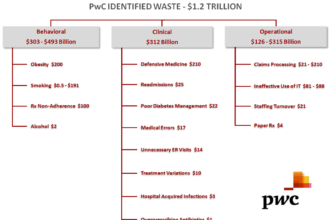There are important differences between the health care providers who truly reap the benefits of switching to EMR, and those who don’t. I’ve covered some of these differences before and I was pleased to see that Katie Matlack, Medical Analyst at Software Advice, actually went a step further and interviewed representatives of three health providers using EMRs now, identifying some key takeaways to extend the conversation. Below are four tips, and for the other four tips, you can view the entire article on her blog.
1. Ask Your Doctors for Their Opinions on Your EMR
Ensuring your doctors are fully involved in the transition to EMR can be a key ingredient. To do this, be sure to ask your team of physicians for insight on what features they would like to see in their product. In the experience of the team at Northwest Primary Care Group in Oregon, asking for this insight from the doctors laid the groundwork for establishing that the doctors were involved in the process and felt as if their input was valued. Also, it helped the team responsible for choosing an EMR to narrow down the options they considered.
2. Get the Software for Your Specialty (or Plan for How You’ll Tailor It)
Getting a software product that’s right for your specialty seemed to be a core component of having a successful transition. After all, you should keep in mind that the better the “fit” of the EMR to what your practice needs, the better it can support you and help you save time. The team at Northwest uses a product that they can quickly adjust themselves, while another health provider I spoke with, Ian Kornbluth, uses a specialty-specific solution built just for physical therapists. He recounted that his transition had been “painless” and straightforward.
3. Get Your Team Comfortable with Computer Hardware
Some doctors who’ll be expected to use an EHR aren’t familiar yet with how to work a computer. So before you ask your team to capture important data on a computer, make sure they are comfortable on a computer. One team I spoke with, at Northwest Primary Care Group in Oregon, said that they gave their doctors the exact computers they’d be using several months ahead of time, so that they could practice on the computers at home. Doing so helped the doctors learn the basics of how to open and organize files, join wireless networks, or even know what to do if the battery runs out. This meant that doctors would be comfortable with these tasks and be able to focus on the newness of mainly the EMR–not the hardware, too–once the switch happened.
4. Decide Who Your Decisionmakers Are For the Process
Katie wrote in her original article:
While getting everyone’s input is key for garnering full support for your transition, it’s equally important to define a clear leader of the process. After the group weighs in, this leader will have the final say. The team at Northwest, whose Medical Director played this role, stressed this point. As they explained, “The doctors knew our Medical Director listened to their input, but also knew that the final decision was up to him, and they defer to him.” The takeaway? Spell out who has the final say in advance, and you’ll neutralize time-consuming power struggles and hair-splitting debates before they arise.
Don’t forget to check out Katie’s blog for the remaining four items:
5. Phase In Hardware Ahead of Software
6. Have a Capable Team Create Your Records
7. Be Systematic About Scanning Documents and Phasing-In EMR Use
8. Involve Your Patients in the Switch






